Search Results for Tag: Radio
Training Malian journalists during tense political times
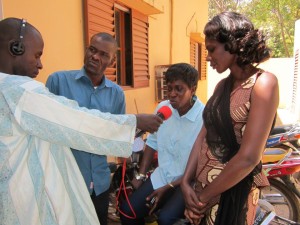 The DW-AKADEMIE workshop on election reporting in Bamako is taking place during a time of real political uncertainty in Mali. Already there had been questions about whether the government was adequately prepared to hold the elections. And then in January, Tuareg rebels started attacking towns in northern Mali and that conflict has been going on ever since.
The DW-AKADEMIE workshop on election reporting in Bamako is taking place during a time of real political uncertainty in Mali. Already there had been questions about whether the government was adequately prepared to hold the elections. And then in January, Tuareg rebels started attacking towns in northern Mali and that conflict has been going on ever since.
The first round of the presidential elections is scheduled for 29 April – about six weeks from now. But Mali doesn’t feel in full election mode yet. With all the potential problems that might arise people are wondering whether the elections will be held on the scheduled day. Political parties aren’t campaigning as aggressively as you might expect. People aren’t discussing the elections with as much passion as usual.
![]() read more
read more
Appel à candidatures pour des journalistes marocains
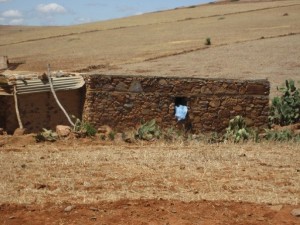 Rédiger des reportages intéressants, actuels et en direct, préparer de manière attirante des sujets pour auditeurs et lecteurs: former des journalistes radio et online dans tous ces domaines – tel est l’objectif d’un projet commun de la Fondation Konrad Adenauer et de la Deutsche Welle Akademie. Nous invitons des journalistes marocains à participer à une formation journalistique à Tanger (du 7 au 17 mai 2012) qui aura lieu parallèlement à une conférence sur l’environnement: “Couverture Médiatique d’une Conférence sur l’environnement et changement climatique au Maroc”.
Rédiger des reportages intéressants, actuels et en direct, préparer de manière attirante des sujets pour auditeurs et lecteurs: former des journalistes radio et online dans tous ces domaines – tel est l’objectif d’un projet commun de la Fondation Konrad Adenauer et de la Deutsche Welle Akademie. Nous invitons des journalistes marocains à participer à une formation journalistique à Tanger (du 7 au 17 mai 2012) qui aura lieu parallèlement à une conférence sur l’environnement: “Couverture Médiatique d’une Conférence sur l’environnement et changement climatique au Maroc”.
![]() read more
read more
East4South: Communication, coordination and cameras
As you may have read in earlier posts East4South is a unique journalism project that enables African journalists to research and produce stories with journalists from Eastern European countries.
Ten African journalists recently teamed up with ten Eastern European journalists for the third cycle of the East4South. The European journalists travelled through the home country of their African partner to research stories. Then together they produce their stories at the DW Akademie in Bonn.
The latest group brought back materials to produce a diverse range of stories from milk farming in South Africa, the struggles of Congolese female politicians to the glitz of Nigeria’s Nollywood, the world’s second largest film-making industry.
![]() read more
read more
Getting everyone up to speed in a converged Himalayan newsroom
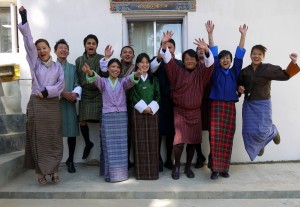 Even high in the Himalayas, reporters these days are being asked to do more.
Even high in the Himalayas, reporters these days are being asked to do more.
As part of a modernization drive, Bhutan Broadcasting Service (BBS) has combined their radio and television newsrooms. In the future, reporters will be required to provide news reports in both media. It’s hoped that the convergence will allow the state-funded station to cut costs and do more with limited resources.
It was against this background that two DW-AKADEMIE trainers went to Bhutan’s high-altitude capital Thimphu to conduct a workshop with an enthusiastic group of 12 young BBS journalists. While several already had some radio production experience, many had previously only worked on the TV side of things.
Together, the group started with a review of the basics, such as news judgment and news writing for radio, before moving on to the interview and how to ask that all-important first question that will grab your listeners and keep them from turning the dial.
![]() read more
read more
10 tips on how to be a good host
 Audiences sure can put anchors to the test. They tend to listen to good friends for a long time, even when their buddies’ stories are rather boring. But when you are moderating, they rarely pay close attention.
Audiences sure can put anchors to the test. They tend to listen to good friends for a long time, even when their buddies’ stories are rather boring. But when you are moderating, they rarely pay close attention.
Frequently they’re busy doing something else, are impatient and fidgety. Sometimes they even leave you with no word of explanation. And if they do return their attention to you, they expect you to be as friendly and courteous as if nothing had ever happened.
Of course that is exactly what you will do without a trace of resentment. Here’s how:
1. Be a good interpreter. Convey and explain complex subject matter in a way that listeners can easily understand.
2. Be a good spokesperson. Pose questions as if you are representing the listener. You’ll come across best when your listeners have the feeling that they would have asked the very same questions.
3. Be prepared. Being well-prepared is half the battle. Read the newspapers every day and stay on top of the latest.
![]() read more
read more
Shedding light on the dark side of labor migration in Asia
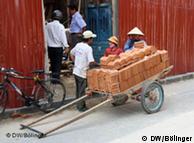 There are about 80 million migrant workers worldwide. We often hear that they have a positive impact on the global economy. For instance, 12% of Bangladesh’s Gross Domestic Product (GDP) is generated by citizens who work abroad in countries such as Bahrain, Saudi Arabia and Malaysia.
There are about 80 million migrant workers worldwide. We often hear that they have a positive impact on the global economy. For instance, 12% of Bangladesh’s Gross Domestic Product (GDP) is generated by citizens who work abroad in countries such as Bahrain, Saudi Arabia and Malaysia.
But researchers like Kalinga Seneviratne say that labor migration from Asia has many hidden problems.
Mr. Seneviratne is the head of research at the Asian Media Information and Communication Centre (AMIC) based in Singapore.
At the Deutsche Welle Global Media Forum in Bonn this summer, Kalinga Seneviratne and other experts discussed how the media can tackle issues pertaining to labor migration.
Talking to Deutsche Welle reporters, the award-winning journalist explains some of the problems migrant workers face, the challenges journalists encounter when reporting such stories and how the media can play a major role in promoting human rights.
Interview with Kalinga Seneviratne
![]() read more
read more
Interview and Talkshow training – get the basics right and listen
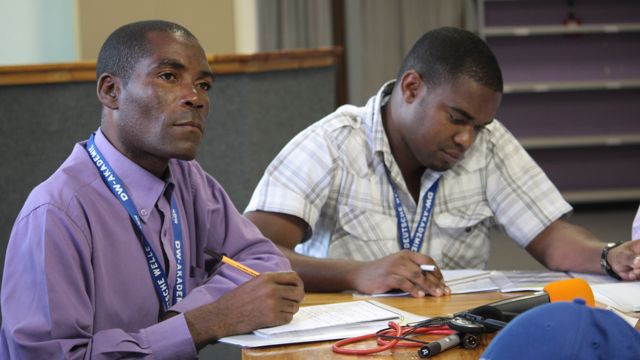
Interviews can be daunting and challenging for young journalists – especially if they are broadcasting live or moderating a talkshow dealing with controversial topics. In this guest blog post, Carsten von Nahmen, Head of the DW-AKADEMIE Africa Team, offers some insight on getting the basics right.
![]() read more
read more
10 radio journalism and audio training resources
When it comes to professional radio journalism and audio production training, it's hard to beat having the opportunity to attend workshops conducted by experts. But if you have access to the net, learning new skills or brushing up on the basics via online tutorials and web resources could be the next best thing.
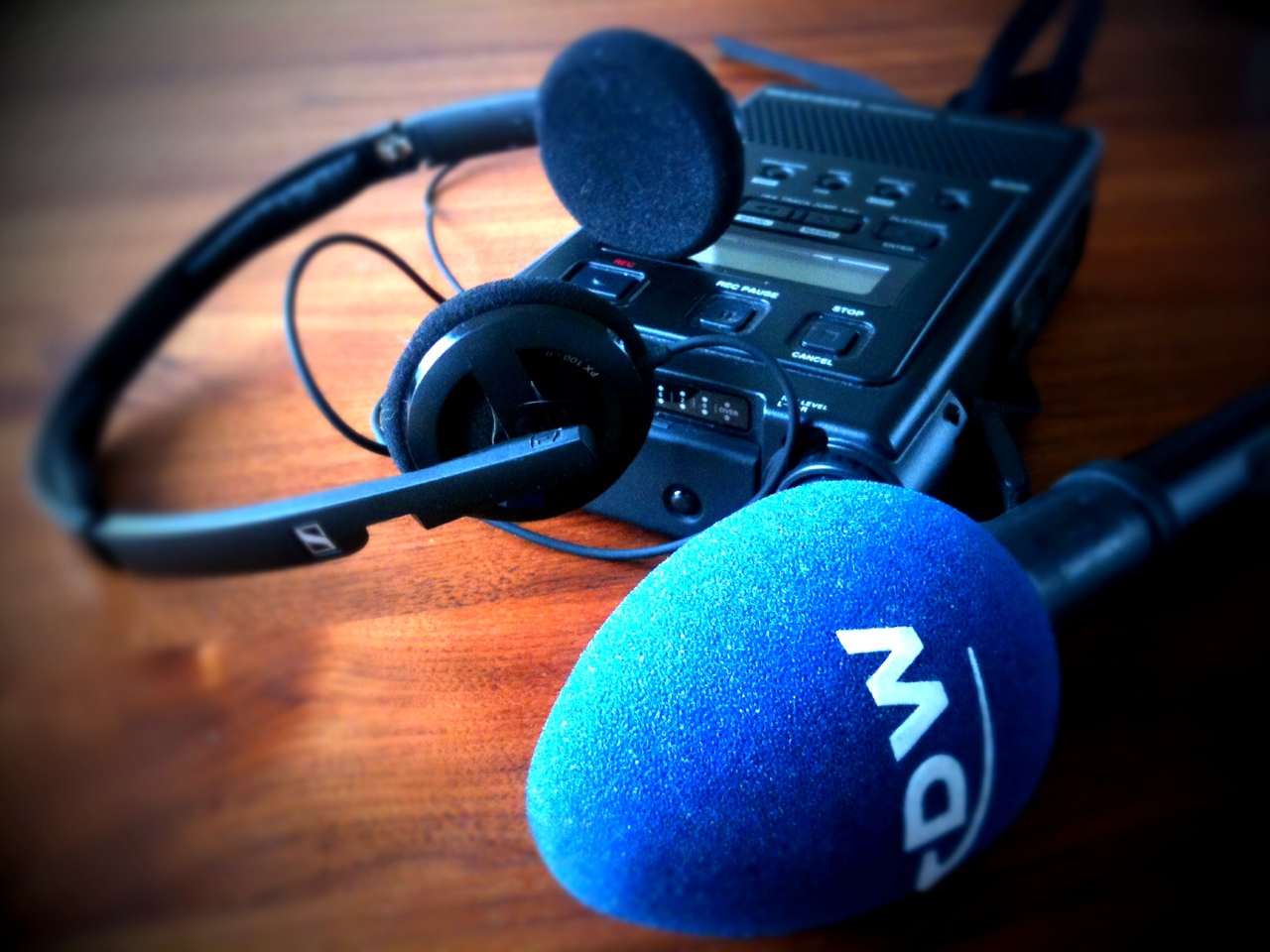
Whether you're a working journalist, trainer or j-student, here is a selection of resources useful for radio journalism and producing audio materials.
![]() read more
read more
Creating a new morning show in Vietnam
What does it take to produce a successful radio program? And how can you motivate the people in northern Vietnam's Quang Ninh Province to tune in? That's what the radio staff of Quang Ninh Radio & TV and DW-AKADEMIE are exploring at the moment in cooperation with Friedrich Ebert Stiftung and Vietnam's Academy of Journalism and Communication.
This week, DW trainers and QTV radio journalists drew up plans for a new morning radio show. It will be called "QTV Rush Hour" and will run between 6:30 and 7:30 every morning. The show will include music, information and audience participation elements.
On Thursday, March 31st, the Vietnamese journalists recorded a pilot for the new morning show. If all goes well, the show will start airing live next month.
Text and pictures: Thorsten Karg, DW-AKADEMIE trainer
Japan through the news lens of Bangladesh
By Taufique Ahmed, Dhaka, Bangladesh
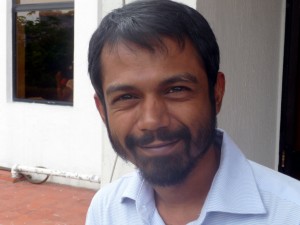 Bangladesh is shocked by what has happened in Japan. People here have closely followed the news to get the latest updates from newspapers, TV, radio and online.
Bangladesh is shocked by what has happened in Japan. People here have closely followed the news to get the latest updates from newspapers, TV, radio and online.
It’s very tough for the media to handle what’s happening in Japan, as there is also another big issue that the people of Bangladesh worry about very much. Many people here are still taken aback by the latest events in Libya, because many Bangladeshis live and work there and have now become victims of the uprising in this North African country.
Japan's tsunami and earthquake are still important news in Bangladesh, as this country is also one of the sufferers of climate change. Nonetheless, Japan's nuclear crisis is also getting attention in the newspapers and at TV and radio stations here as the situation worsens.
![]() read more
read more





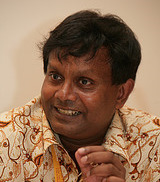




Feedback